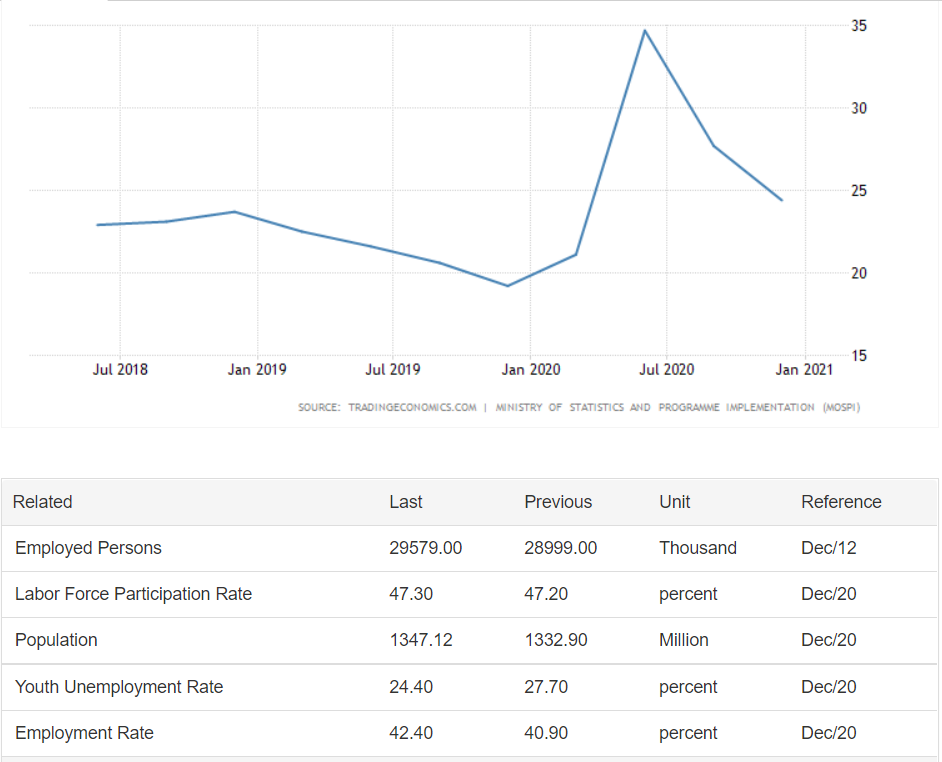Dear all !!
This blog throws light on the impact of technology and digitization in key sectors of the Indian economy. The analysis encompasses the effect in service sectors (which include financial and non-financial sectors) and manufacturing sectors (which are engaged in the production of goods). Technology has impacted some of the vital work sectors of India’s development in the last twenty years. For any company to grow, expenditure on Information and communication technology, better HR policies and profitability are some of the fundamental points that need to be addressed. Changes are now significant and it can be seen when multinational corporations locally manufacture goods or import it and sell it in the Indian market. But is this market open to all sections of society? Does this point towards economic growth? With companies now indulging technology in their business, how does it affect the lives of common people? Do the advantages of technological economic growth trickle down to the lower classes or only the elite ones are benefiting from it?
Introduction:
India has been successful in creating a large ecosystem of Science, Technology, and Innovation (STI) since its independence in 1947. Various public and private businesses, educational institutes, and human resources contribute to the STI ecosystem. India has over 1,000 colleges, 240 research and development centers, and over 4,00,000 science workers. Our science and policy ecosystem has benefited some of the world’s greatest scientists, technologists, and businesses. This has been made possible by the national and state governments’ implementation of strong policies over time. The goal to make India technologically advanced, was conceived out of the acknowledgment that the formation of a welfare state was just possible through interests in science and innovation. Science and Technology would along these lines go about as an instrument of financial growth. Interest in science and technology was needed as it would diminish the problem of the over-utilization of raw materials and capital. It would likewise reduce the gap among India and the developed nations.
Four major policies were implemented since independence to solidify the motion towards advancement:
- Scientific Policy Resolution (SPR 1958)
- Technology Policy Statement 1983 (TSP 1983)
- Science and Technology Policy 2003 (STP 2003)
- Science, Technology and Innovation Policy 2013 (STIP 2013)
Science and technology have begun to have a far-reaching impact on economic growth and social development. The policies were implemented by the Government of India in order to keep up with science and technology, to remain ahead of competition in the current globalization era, and to achieve our fundamental goal of effective and sustainable development. However, with advent of new technologies, newer concerns about cyber security, ethics, privacy, and unfairness have surfaced.
Technology’s effect on market:
Technology is widely acknowledged in economics as the primary catalyst for economic growth in countries. Technological advancement helps to optimize supply of goods and services qualitatively and quantitively, which is essential for prosperity. The market sure has grown since digitization and technical advancements started to influence the production, which in turn impacted supply of commodities and services. With more specific job created diffusion of skilled labour, it has sure affected the lives of common people in both, positive and negative manner. On the positive side, Technology is having a significant impact on the economy.
- Labour demand is transitioning away from regular low- to middle-level skills and toward higher-level, hence to more sophisticated analytical, technical, and management abilities as a result of automation and digital improvements. This motivates the common man to learn new skills and stay updated with the world.
- It has made transportation of goods and raw materials easy. Cheaper and flexible transportation system has lessened geographical constraints on availability of services and goods.
- Since many services are inexpensive to transport internationally, large service companies have merged into giant companies and enjoy trade policy opportunities like trade and entry barriers to their home markets.
- Technology has allowed companies and users to undertake a wider set of customer data, or services without extravagant costs.
- In research and development of new medicines, diagnosis, or equipment in general used in all fields, technology played a major role to resolve some of the biggest problems using models and networks.
- The impact of technology perhaps is significant on international trade. It permits the providers of services and goods to coordinate design and raw materials to minimize costs. Storage of goods like high-volatile chemicals, coal, oil and advanced technology has led to growth of construction and engineering in both, the seller and the buyer companies.
- Negatively, Firms at the technological frontier have harvested significant useful gains, however, the new advancements would in general create winners-take-most results. Predominant firms have procured more market power, market structures have become less competitive, and business dynamism has declined.
- A negative part of technical change is its effect on income distribution. Labourers who are dislodged by technological advances might think that it is hard to become re-utilized as new positions require progressed abilities they don’t have.
Innovation impacts the quantity of occupations expected to deliver labour and products. This will bring about positions getting more automated and working-class occupations will be lost, resulting in the gap between those who are well off and the less wealthy widening. Yet, notwithstanding contributing 9.3% of the nation’s GDP, as indicated by NASSCOM, the IT business just utilizes 3.7 million of the nation’s roughly half a billion working adults. World Bank information gauges 69% of the present positions in India are undermined via robotization.[1] India is now attempting to create job opportunities in the midst of quick development. The proportion of working-age population in India as of 2020 is 67.3 percent of the total population [2], however the number of employed people just rose by 37.6% by July 2020 [3].
All things considered, robots replacing jobs in mass numbers is unreasonable in the medium term in India or elsewhere, yet the impacts are as of now being felt. Last September, Indian textiles giant Raymond said it would replace 10,000 jobs with robots over the next three years. However, the elite class is definitely benefitting from this transition. With secured jobs and booming businesses, automation is an imperative to improve competitiveness, quality and efficiency. For Businessmen, automation means “one-time investment but long-term increased productivity and efficiency”. Increasing industrial productivity through automation may reduce job opportunities, while business owners argue that that it’s the only way to stay in global competition. Rural Indians go to cities in search of higher income, but they rarely stay long due to demanding targets, poor wages, and higher costs of living. Robots, on the other hand, don’t relate to these problems.
Look at unemployment rate in December 2020:

Conclusion : Growing with Technology
It is impossible for technology to remain neutral. Because the world we live in isn’t balanced, fair, or just, it can’t be unbiased. Technology is created by humans. It serves as a mechanism for achieving a goal. What we as a society can do is inculcate it in our lives and learn to live with it. With technology now being the wheel of economic growth, its time the learning institutions include it in their system and focus on critical thinking, collaboration and creativity. Virtual labs, courses and classes are now being introduced for students so that they adapt to the change as it happens. Companies and start-ups also are introducing extra-curricular technical classes to teach problem solving skills that are now more desired than ever in future jobs. To go against the flow of the future innovations and progress, is not a choice any growing individual, company or nation prefers. India, where knowledge and education is still put on a pedestal higher than anything should hold hands with technology and update its curriculum. This would help the youth help India increase its productivity which in turn would increase its economic growth.
Shubhra Arora – 19162101002, B Tech CSE (CBA)
References:
[2] https://data.oecd.org/pop/working-age-population.htm
[4] Aditya Kaushik, B. Chagun Basha & Lakshmi Ganesan, “Science Technology and Innovation (STI)Policies in India: a Flashback.” Indiabioscience.org,https://indiabioscience.org/columns/indian-scenario/science-technology-and-innovation-sti-policies-in-india-a-flashback. Jan 02 2020.
[5] KUMAR, DURU ARUN. “Technology Growth in India—Some Important Concerns.” Polish Sociological Review, no. 178, Polskie Towarzystwo Socjologiczne (Polish Sociological Association), 2012, pp. 295–302, http://www.jstor.org/stable/41969446.
[6] Hülya Kesici ÇalÕúkan, Istanbul university, Technological Change and Economic Growth, https://cyberleninka.org/article/n/501294.pdf. 2015.
[7] Ricardo Hausmann and José Domínguez, Knowledge, Technology and Complexity in Economic Growth, https://rcc.harvard.edu/knowledge-technology-and-complexity-economic-growth.
[8] Mühleisen, Martin. (2018). The Long and Short of The Digital Revolution. Finance and Development. 55. 4.
[9] Kartik Hegadekatti, The impact of technology on our lives and economy,https://yourstory.com/2016/12/technology-impact-lives-economy/amp. December 24, 2016.
[10] Metcalf, Thomas. “How Does Technology Affect Economics?” bizfluent.com, https://bizfluent.com/facts-7439087-technology-affect-economics-.html. 9 November 2021.
[11] Edd Gent, “Why automation could be a threat to India’s growth” bbc.com,https://www.bbc.com/future/article/20170510-why-automation-could-be-a-threat-to-indias-growth. 19th May 2017.
[12] Technology and Global Industry: Companies and Nations in the World Economy (1987), chapter 7 The Impacts of Technology in The Services Sector by James Brian Quinn https://www.nap.edu/read/1671/chapter/7
[13]. Cover Image Source: https://economictimes.indiatimes.com/news/economy/policy/why-india-needs-to-take-technology-seriously/articleshow/66307882.cms




